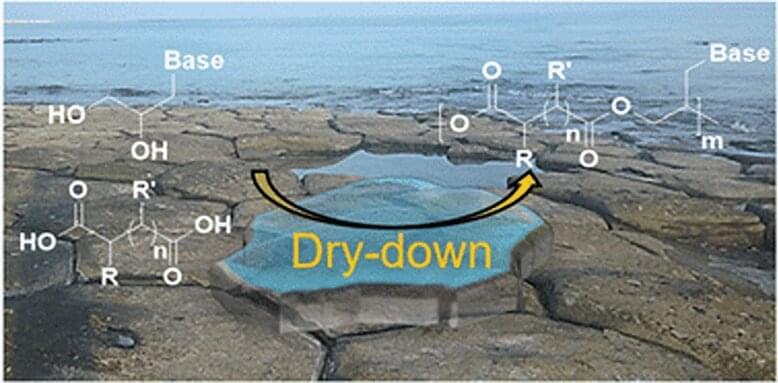The chemical origin of life on Earth is a puzzle that scientists have been trying to piece together for decades. Many hypotheses have been proposed to explain how life came to be and what chemical and environmental factors on early Earth could have led to it. A step required in a number of these hypotheses involves the abiotic synthesis of genetic polymers—materials made up of a sequence of repeating chemical units with the ability to store and pass down information through base-pairing interactions.
One such hypothesis is the RNA (ribonucleic acid) world hypothesis, which draws from this concept and suggests that RNA could have been the original biopolymer of life both for genetic information storage and transmission, and for catalysis. However, in the absence of chemical activation of RNA monomers, studies have found that RNA polymerization would have been inefficient under primitive dry-down conditions without specialized circumstances such as lipid or salt-assisted synthesis or mineral templating.
While this does not necessarily make the RNA world hypothesis less plausible, primitive chemical systems were quite diverse and could not have possibly been as clean to just contain RNA and lipids, suggesting that other forms of primitive nucleic acid polymerization may have also taken place.
